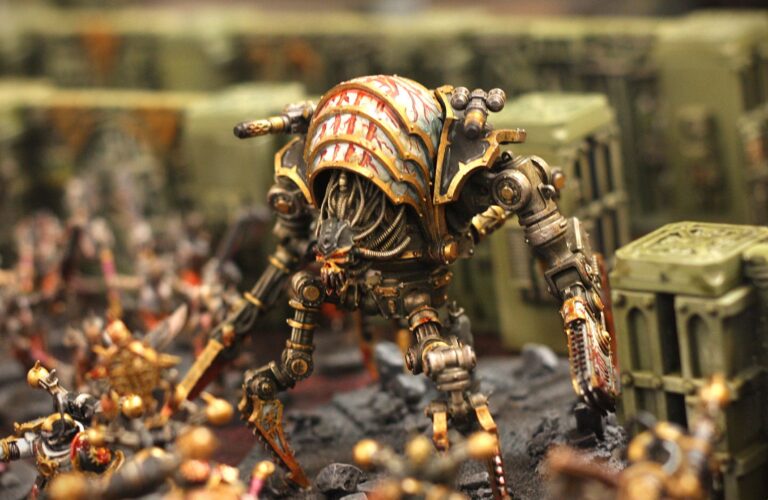ICI V Part Five - Afterword
By Ian
Welcome to the final installment of our mini-series on the fifth Inquisitorial Conclave Invitational. This part will focus on thoughts about what went right, what went wrong, and what we’re doing differently next time.
If you’d like to check out the previous versions, see the links below:
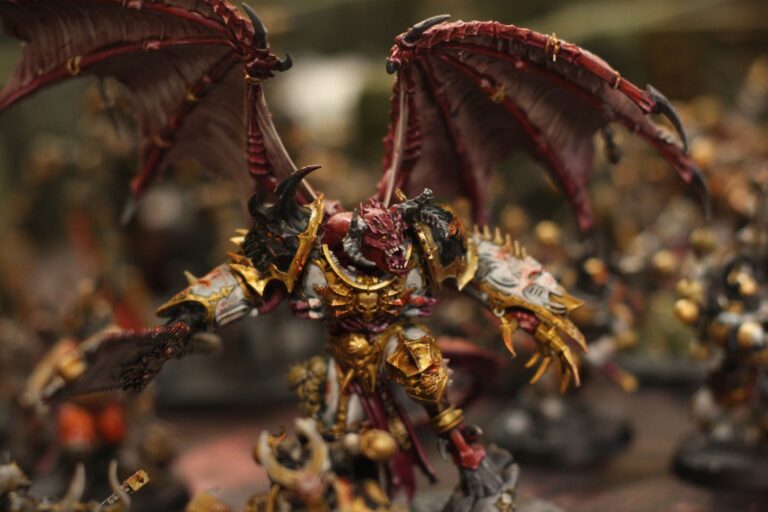
Player Feedback
A few weeks after the event (aka when I’d recovered), I published an After Action Survey to our Discord asking for player feedback in the form of a, you guessed it, Google survey. 81% of players responded and the feedback was great to read and will be helpful for planning the next event. The results are private to our group, but you can see the questions here.
Some questions I wish I’d included were around overall satisfaction of the event, as there was a lot of feedback and criticism, which is helpful and we requested…but sometimes felt like people weren’t satisfied. From conversations I had with people after the event, they really enjoyed it, but, for my own emotional well being, it would’ve been nice to see it in graph form.
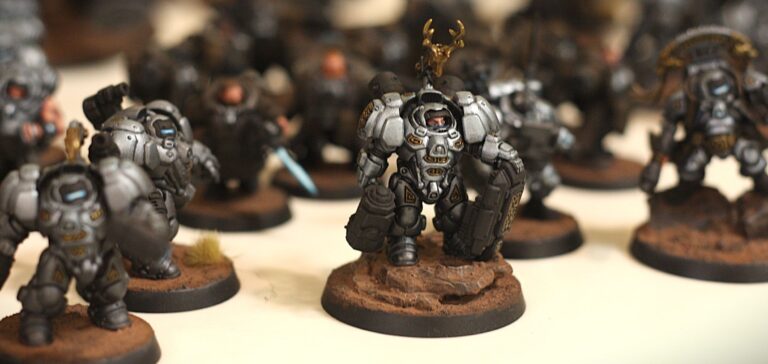
Ticking away the moments
If the many, many thousands of words from this designer diary haven’t made it clear, planning the ICI 5 took up a metric ton of time. I don’t regret doing it, but it did dominate my free time for about 6 months, where my sole hobby became planning the ICI. As I get older and have more and more commitments, I’m becoming very aware of the constraints Real Life ™ is putting on my hobby time and that it’s important to be efficient and judicious with that time.
There is no question in my mind that the ICI 5 represents the best event Jacen and I could’ve put on. We can put on a different event, we can now benefit from the experience of running the ICI 5, but in the year of our lord 2024, that was the best we could do.
Which means, if we want to do a better event, somethings gotta give.
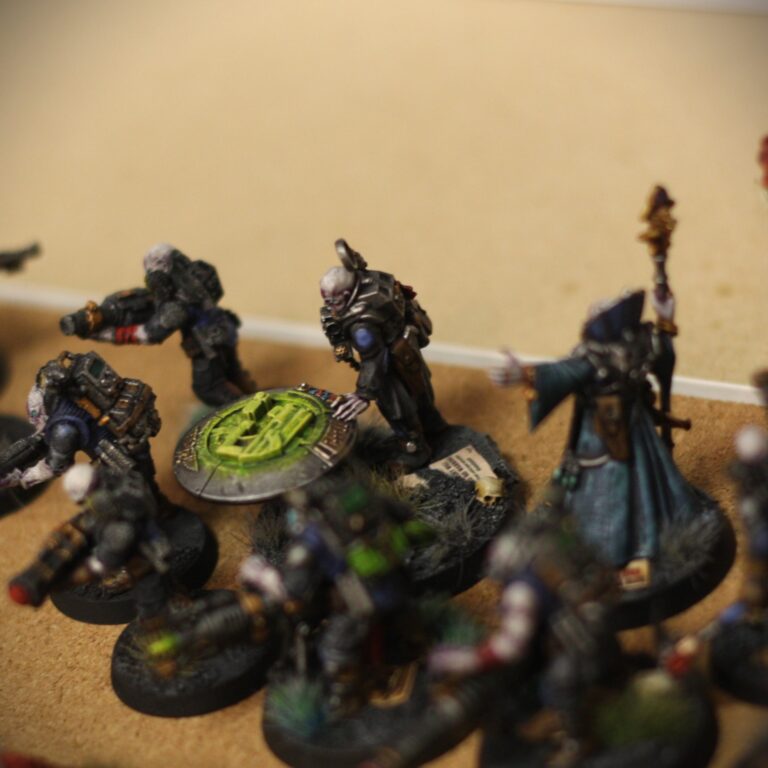
List Vetting and Matchups
I will go on and on about how I do not like the Warp speed updates that GW puts out for 40k. Delaying list submission for the latest update was a mistake: by the time we had lists in hand, most players had already painted a huge portion of their lists and we couldn’t in good conscience ask them to put aside units they had specifically finished for this event. And simply collecting, reviewing, and discussing all the lists was a large chunk of time that was really, in the end, pointless.
Similarly, setting up the event’s matchups took a lot of time, mainly to ensure new players didn’t get rolled by stronger opponents. I think the matchup system wasn’t a waste: over 92% of players enjoyed it. But the feedback we got was also overwhelmingly to include more narrative aspects to the event.
To this end, we decided for future events to cut back on list vetting to just a few players who we’ve identified as stronger and who will disproportionately unbalance the event if they bring a tournament list. We may do pre-planned matchups again, but the process would not be around balancing the event.
We can do this for a simple reason: the ICI is an invitational event. If someone ignores the narrative spirit, we can simply not invite them back. If we were doing a public event, maybe we would bring back list vetting and balance matchups, but that’s a problem for future Ian and Jacen.
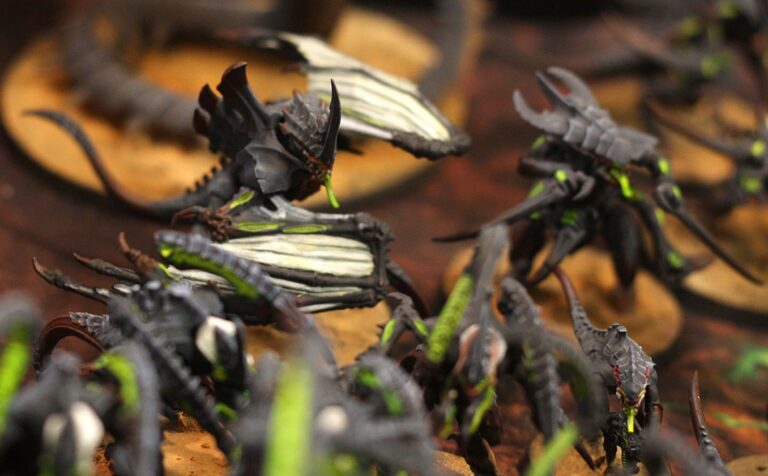
Missions and playtesting
The feedback we got on the missions was to incorporate more narrative elements into them. We also received various feedback on tweaking a few mechanics (i.e. timing of when certain objectives are scored) as well as a lot of feedback that the Ambush mission needs to be overhauled. Ambush was the only mission we received consistent negative feedback on.
This really highlights the need to playtest missions, even when they’re based on staples such as ambush, which has appeared in GW books going back to when I started playing in 3rd edition. Of course, game mechanics change and porting a mission from an old edition isn’t always as straightforward as updating a few keywords or scoring.
Most of the playtesting we did was one player setting up two armies and playing out a game against themselves. I can’t speak to the other playtesters, but I was actually quite surprised by how well this worked: I took notes during the playtest games and was able to tweak and clarify a lot of mission rules. Of course, we couldn’t playtest all the missions (I think we did about five of eleven) but all the ones we tested were tweaked. The ones we didn’t playtest received the most feedback in the player survey.
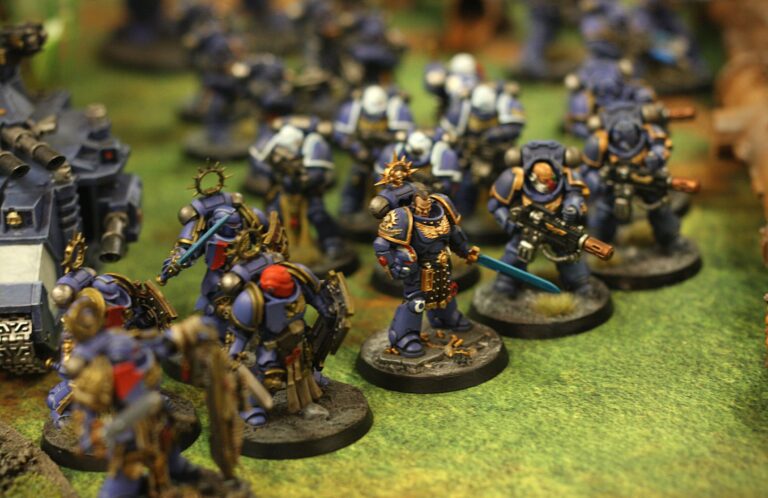
Timing and Number of Games
We did 2.75 hours for each 1,500 point game (or 1,000 points for Zone Mortalis tables), which we thought would be enough. Each player played five games over the weekend: three on Saturday and two on Sunday. We asked players in our survey how many games they finished to turn five and most players finished less than half their games (with no one finishing all five).
I think a more relaxed pace would work a lot better, especially for a narrative format. There’s a few ways we could go about this: more time for each round, less games in the weekend, or smaller game sizes. We’ll see for the next weekender.
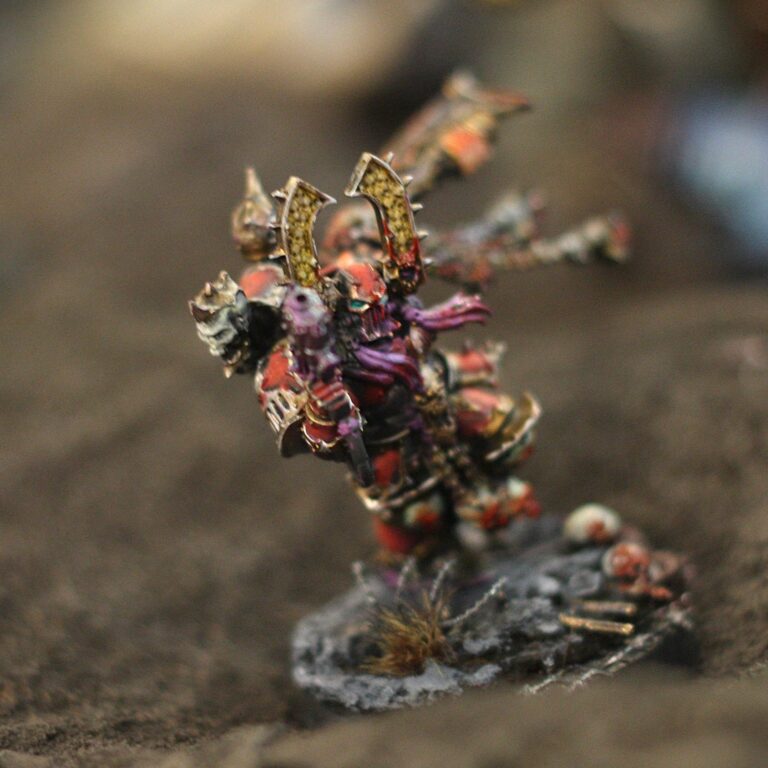
Pick a card, any card
A lot of the feedback we had on the Tarot cards was that the negative traits were too harsh. Maybe they were, but I strongly feel that there should be a risk to them. That being said, if we were to use them again, we’d look closely at each. Maybe improving the potential rewards would be best, to make the risk worthwhile.
Feedback on the Black cards was that they often weren’t impactful enough or too situational. We had a deck of 19, and definitely could have slimmed that down (as there were 16 players we could have, at a minimum, cut three cards). I think this was a good mechanic: as I said in the previous post, it allowed us to put our thumb on the scale to balance games on the fly. Again, I’d give them another pass if we use them again, and try to make them more meaningful and powerful
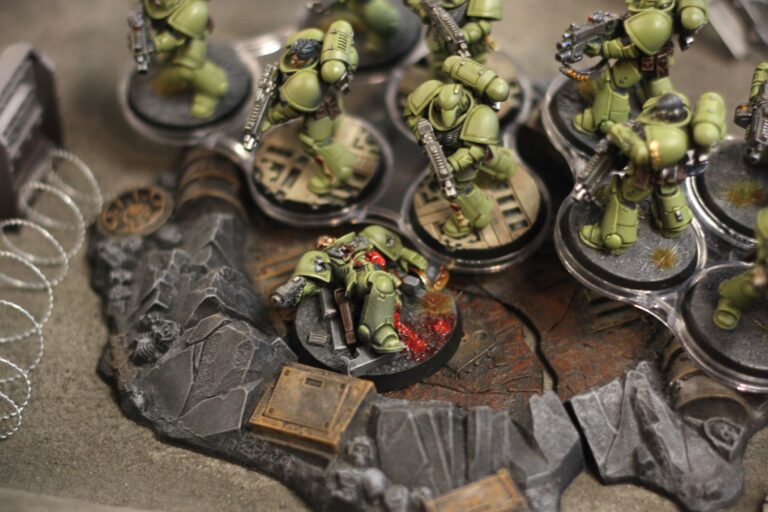
The Zones Mortalis
I think boarding action-style games are a really important part of 40k, especially in the lore and, since I’m the proud owner of a whole Zone Mortalis table, I want to see them included at my events. The question was which rules to use, our ZM house rules or GWs Boarding Action rules.
The Boarding Action rules change the game in a few fundamental ways, and I wrote the ZM rules to be a more straightforward port of regular 40k. But I’m not a professional rules writer, and some players were confused by them.
Giving the ZM rules another pass (probably to add a few examples or diagrams) is in the future to make them clearer. I do think this was the right move though, as the alternative is players either pirate the Boarding Action rules or purchase an $80 book for the event.
I think I could have also prepared a quick tutorial for the ZM tables and ran through it with players each round, as Jacen and I were on hand to answer questions. If you’re using complex mechanics at your event, being around to explain things (and making sure that you do) is important.
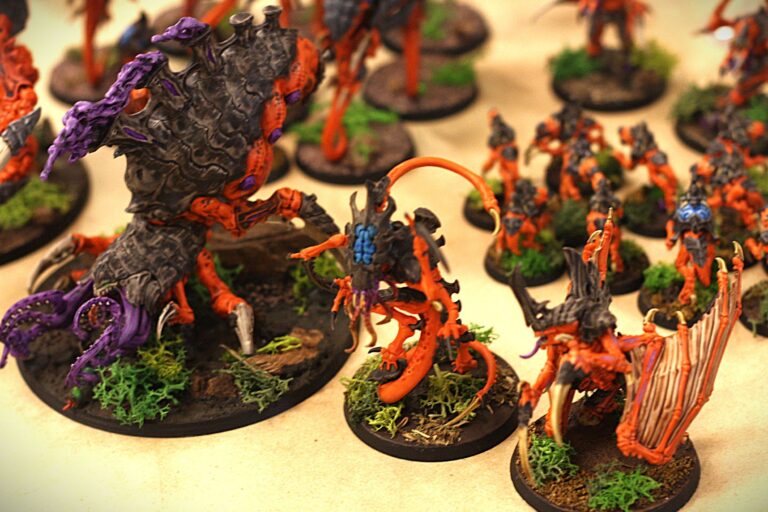
Awards
This year we had 19 awards, more than enough for one for each player. We did these by player ballot (go go Google survey), but will probably switch to judging for some awards next time. There’ll still be votes for things like “Favourite Army” and “Greatest Tactical Blunder”, but as we expand the event with new people, it’s important this isn’t just a popularity contest and everyone gets a fair shake at the awards. Not to say that the people who won didn’t deserve it, but I spoke to a few people who missed armies during the showcase.
This year we also did a “choose three” system for most categories, which worked really well and will continue that going forward. Also incorporating 3D prints along with the plaques and printed labels worked really well, though I forgot to add the name and date of the event along with the award name.
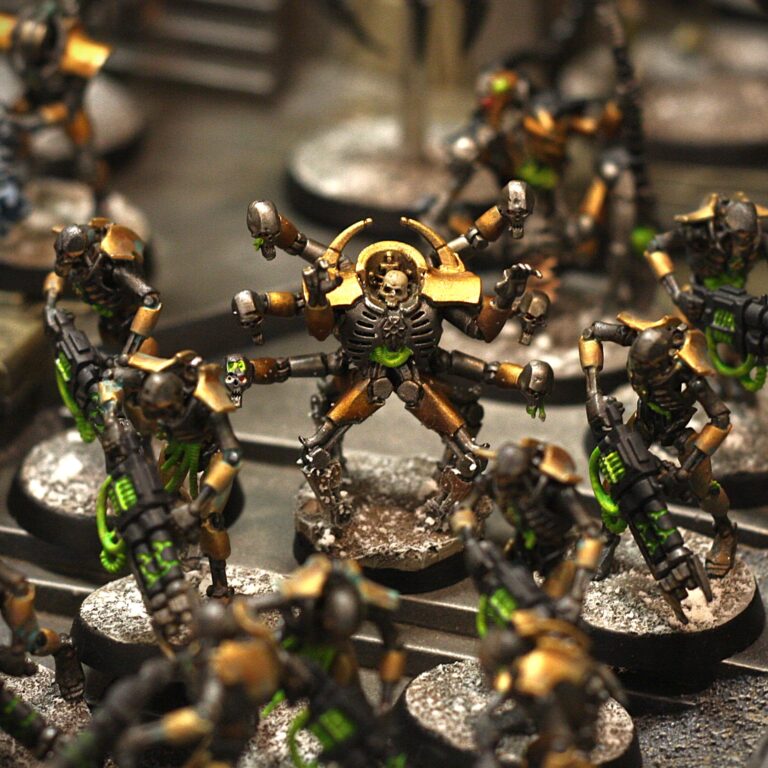
Army Composition
For this event, we had a Battleline requirement (two units for 1,500 point games and one unit for 1,000 point Zone Mortalis games) plus restrictions on bringing more than one “commander level” character (i.e. max one Space Marine captain or chapter master). Although I think this worked well and the feedback we got was overwhelmingly positive, we may change this to a Battleline requirement and no named characters. In several cases, players brought counts as or proxies for special characters or just took them because they were better. At the end of the day, Marneus Calgar doesn’t really give a damn about the Pilgrim Sector and we want to encourage players to build their own characters.
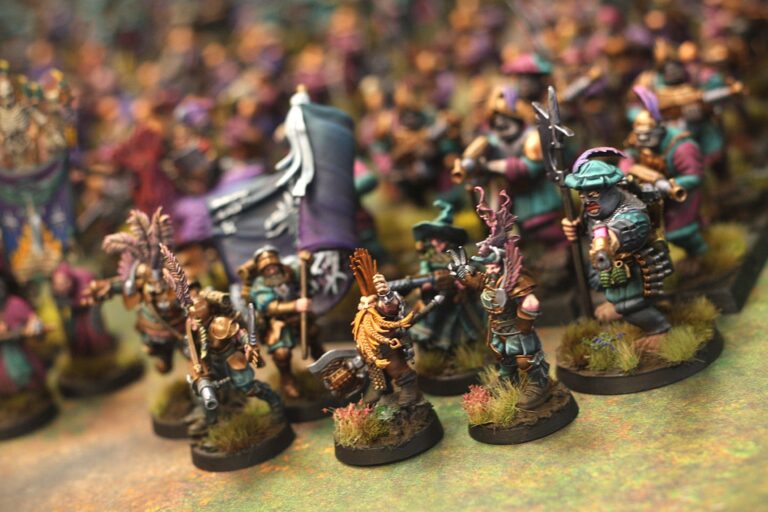
Story and continuation
I was really pleased with the narrative for the ICI 5: it was the first time the whole story for an event was transcribed, without any pieces of lore being left in my head, having run out of time to write them out (well, almost, there’s one or two things that were left unfinished). It was also incredibly helpful to have Recusant helping, not just because they’re a fantastic writer but also to take some of the load off my shoulders.
Still, the overwhelming response on our player survey was “MOAR NARRATIVVVVVVE!!!” I think, in some respects, this will always be the response: it’s a narrative event, that’s what people are there for, and they’ll always want more. But in hindsight, the story of the Apocrypha Engine and Exitus is presented as a mystery. All the short stories and lore we presented to the players ahead of time was setting up that mystery. The payoff, however, was not presented at the table. In fact, we were very light on presenting stories and narrative during the event. We had the Tarot cards, but these really just added more theme and flavour than answering any questions about what the Engine is. Other than a brief spoken update at the start of the second day, we didn’t actually progress the narrative at the event: it was all front loaded through the short stories we presented on Discord and the pieces in the campaign book.
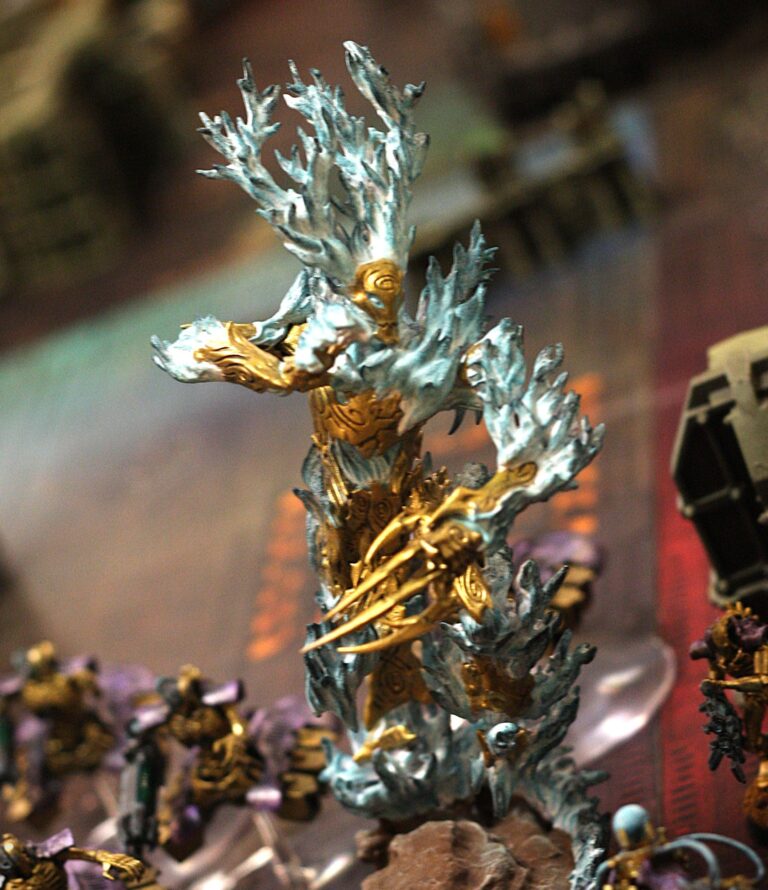
There are players who don’t read these stories. I don’t begrudge them: as I alluded to earlier, time is a valuable and finite resource and if people don’t want to spend it reading what is (hopefully good) fan fiction, that’s perfectly fine. But that is how I present the narrative, at least in part: writing is in my wheelhouse. The other main parts are through mission design and terrain. But if people don’t read the backstory, they’ll be missing out on a big chunk of the story.
All that said, we could have done more to present the narrative during event. The cards could have had clues to the mystery of the Engine and/or we could have prepared bits to read out between games, just to name two that come to mind. These are things I’ve noted for next time.
But hope is not lost. For the ICI 6, Jacen and I are discussing running an apocalypse game as a climax to the story of the Engine. This is kind of the best of both worlds, to be honest: we’ve set the stage for the McGuffin and setting, and now we get to spend more time crafting the finale. Maybe we should’ve done that for game five of the ICI 5, but live and learn.
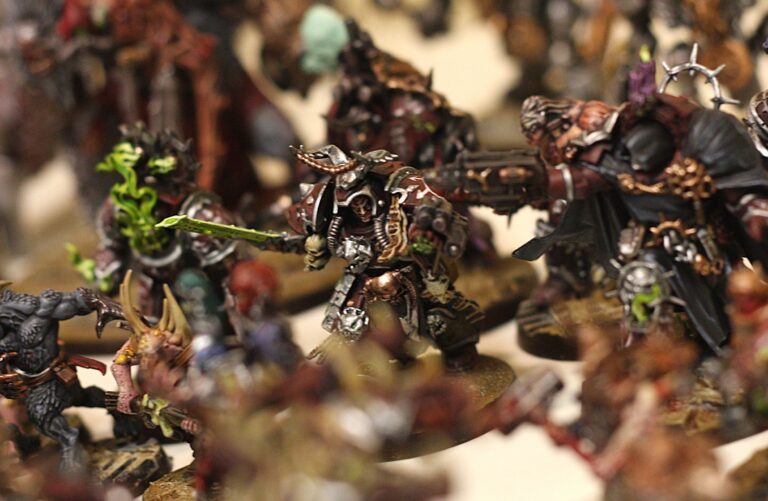
Highway Star
One Saturday early on in the planning process, I drove into the city, met Jeff at a Horus Heresy event where he gave me a 3D printed inquisitorial seal, drove over to Recusant where I dropped off the seal, the handmade envelopes, and invitations so they could be sealed with wax, then drove back home. A few weeks later, I drove another batch of envelopes and invites to Recusant for sealing and mailing. A few months later, I drove to three player’s houses to pick up terrain and folding tables, and loaded up Jacen’s car before convoying it to his place. After the event, Jacen did a run into the city to drop this terrain off with the players.
We didn’t budget for gas mileage and these costs came out of Jacen and my pockets. Besides that cost, the literal hours it took running around was very wasteful. I should have just bought wax and done the fancy sealing myself and, when factoring in the mileage, we probably could have bought the folding tables and at least some of the terrain.
This isn’t the first time I’ve done running around for an event, picking up terrain and tables, but that was when I was younger and had less responsibilities. Now, in retrospect, I wouldn’t have accepted terrain for the event that needed ferrying: we could have planned around it and made adjustments.
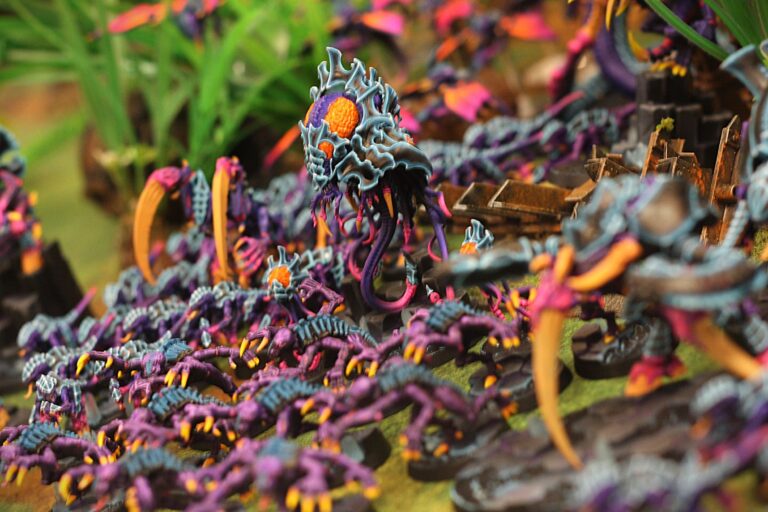
Last bits of advice
There’s a few key kernels of wisdom I want to impart on event planning in general.
Find your team. Planning this event with Jacen has been very rewarding and improved the process and event immensely. If you can find someone you click with to plan events, work with them! And find volunteers to help: both Jeff and Recusant were a huge help and brought skills to the table that were invaluable.
Shoot for moon and be happy to land amongst the stars. That is literally a quote from my grade 8 classroom, but it applies. Plan big, and if you miss, just save those ideas for next time. Also, your players won’t know you missed. You will, and it might tear you up inside, but your event can still be a huge success even if you didn’t finish that last, amazing piece of terrain/narrative piece/sector map.
Don’t be afraid to be the boss and tell people no. Jacen really taught me this lesson. Even though you’re putting on the event for other people, it’s still your event and you are allowed to make decisions about it. Those other people might not come if you’re a complete jerk, but assuming you’re not, you can put your foot down on army composition, painting requirements, and mission design and people will still come. And though it is really important to get feedback and listen to your players, sometimes you should listen to your gut.
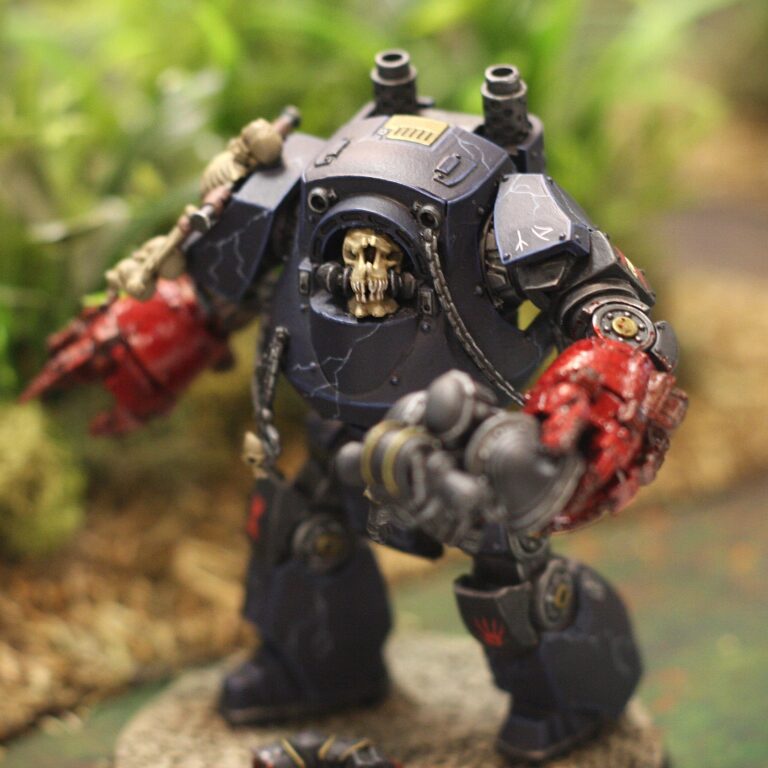
A marathon and a sprint
If you’ve stuck with all five parts of this deep dive, then congratulations! You’re probably an event organizer and, if you haven’t, you should go plan an event!
Writing these has been a slog at times, pushing myself to get as much of the details down as possible, even if they’re not exciting or glamorous. The ICI 5 was a huge undertaking and I’ve tried to document the planning in as much detail as possible to be a resource for others. A big part of this blog is to encourage narrative play so if nothing else I hope this has given you ideas for your own games.
If this all seems daunting to plan, remember that you don’t have to run this event. This was the most ambitious event that I’ve not only planned but attended, and yours doesn’t need to be this crazy to be a success. All my other events have been much simpler than this and I plan for many of my future events to be simpler than this.
If you have dreams of running massive, story-driven wars, stories of fantastic narrative events you’ve attended, or think we’ve got it all wrong, why not shoot us an e-mail at contactus@wrongsideofthemaelstrom.com? We’d love to hear from you!
And if you’re running a narrative event in the Toronto area, then I definitely want to hear about it!
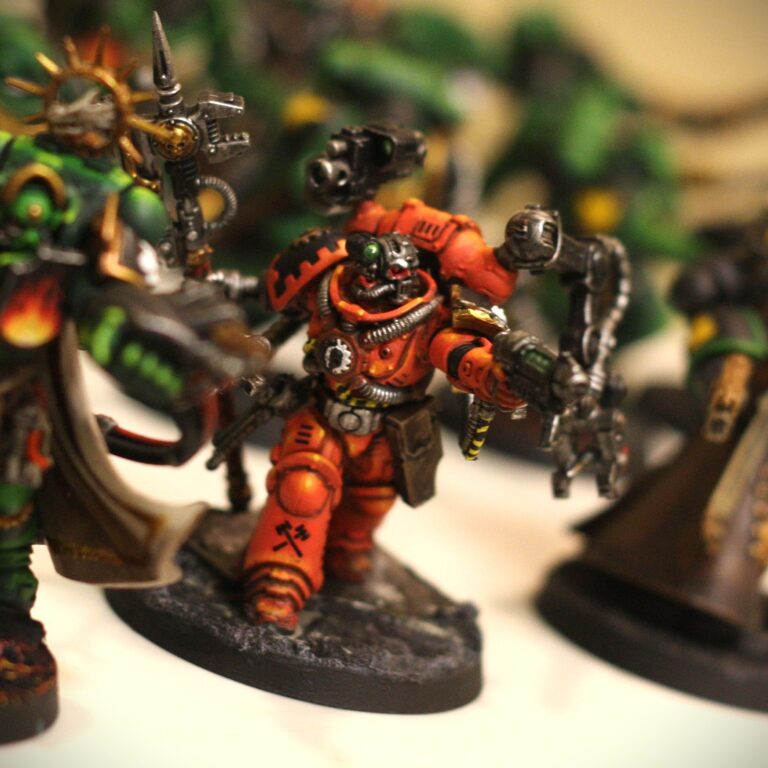
Credits
Unless otherwise noted, all photos by Ian.
Raptors Space Marines by Alys.
Salamanders Space Marines by Greg.
Ultramarines Space Marines by Chris.
Leagues of Votann by Erik.
Word Bearers by Recusant.
Night Lords by Jeff.
White World Eaters by Zach C.
Red World Eaters by Tony.
Black and Green Tyranids by Mike.
Blue and Black Neon Tyranids by Kelly.
Black and Orange Tyranids by Jacen, Greg, Ian, and Elton.
Genestealer Cults by Mathias.
Rogue Trader Imperial Guard by Noah.
Purple and Gold Necrons by Zach D.
Gold, Silver and Green Necrons by Phonsy.
